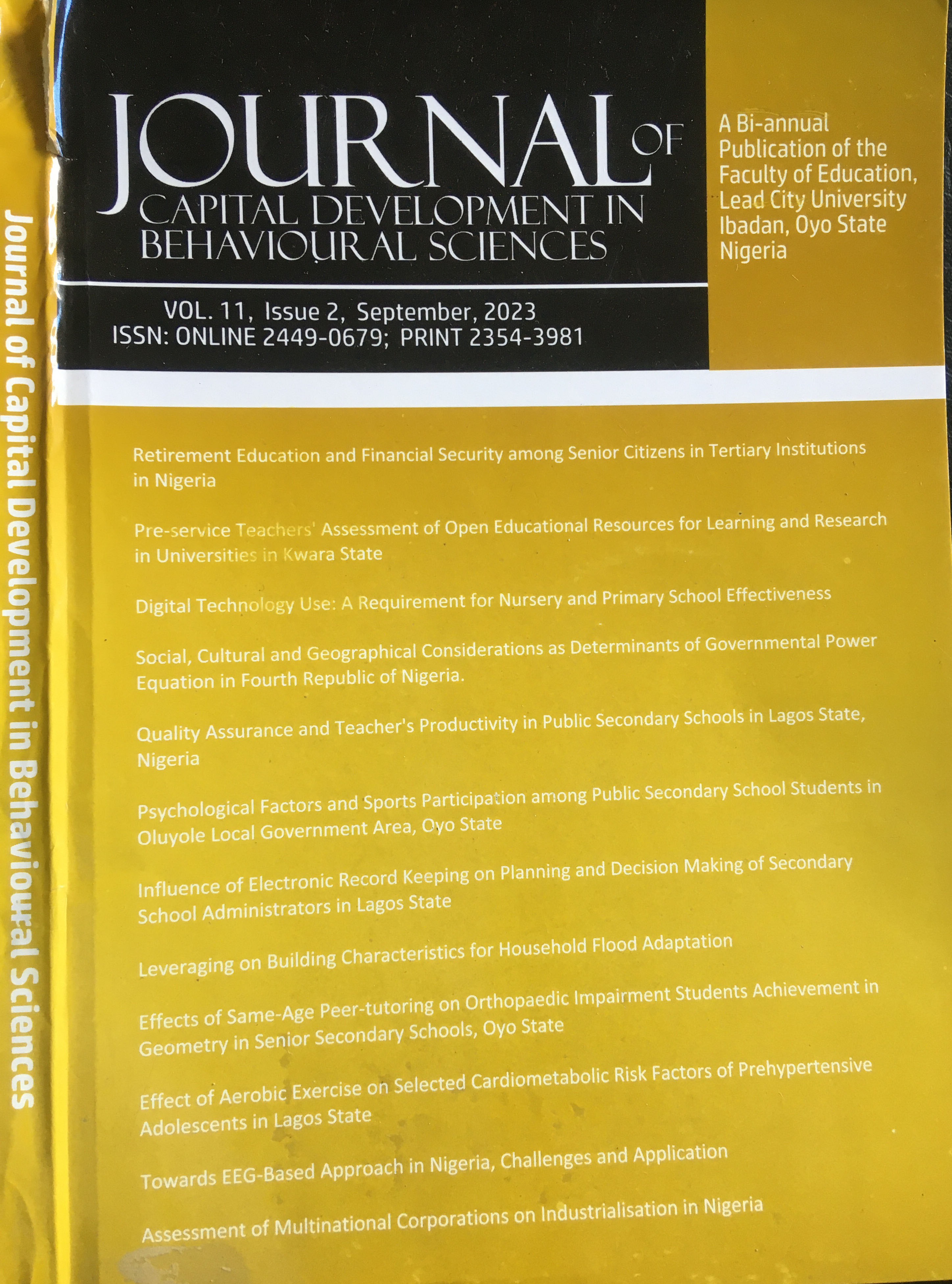Social, Cultural and Geographical Considerations as Determinants of Governmental Power Equation in Fourth Republic of Nigeria
Keywords:
Social, Cultural, Geographical, Consideration, Governmental, Power Equation.Abstract
The study examined the social, cultural and geographical considerations as
determinants of governmental power equation Fourth Republic Nigeria.
Three (3) research questions and three hypotheses were answered and
tested in the study, respectively. The design of the study was correlational,
with the population as the 774 Local Government Areas in Nigeria. These
Local Government Areas have 774 Chairmen and Chairmen of Caretaker
Committees, from which 387 (50%) were selected as sample using the simple random sampling technique. Respondents of the study responded to
2 sets of instruments. These were the 21-item Social, Cultural and
Geographical Considerations Scale (SCGS) and the 8-item Governmental
Power Equation Inventory (GPAI), designed by the researchers in the
modified 4-point Likert scale model, with reliability indices of 0.84 and 0.89,
respectively. Simple regression was used in answering the research
questions while z-test associated with simple regression was used in testing
the hypotheses at a 0.05 level of significance. The findings of the study show
that social, cultural and geographical considerations determine
governmental power equation in Fourth Republic Nigeria and that there is
a significant determination of social, cultural and geographical consideration
of governmental power equation in Fourth Republic Nigeria. Consequently,
the study concluded that social, cultural and geographical variables play
strong roles in determining governmental power equation in Fourth Republic
Nigeria. Recommendations made are that stake holders should come out
with appropriate parameters when using these variables in determining
governmental pendulum.

